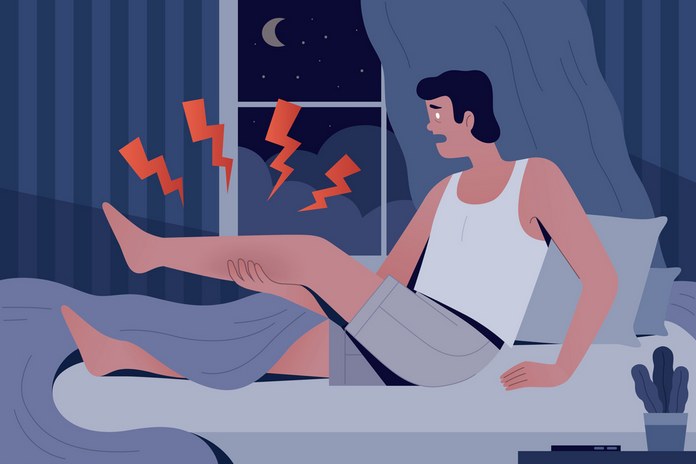Side Effects of Pinched Nerves

If you have ever experienced a sharp, shooting pain in your body that seems to come out of nowhere, you may have had a pinched nerve. Pinched nerves can happen anywhere in your body, but they are most common in your neck and lower back. There are a few different ways to tell if you have a pinched nerve. The most common symptom or side effect is pain. You may feel this pain in the affected area, or it may radiate out from the affected area to other parts of your body. Numbness, tingling, weakness, and muscle cramps. If you think you may have a pinched nerve, it is important to see a doctor so that they can diagnose and treat the problem.
Pain
When you have a pinched nerve, the first thing you may notice is the pain. This pain can range from mild to severe, and it may be constant or come and go. The pain is caused by pressure on the nerve, which can happen when the nerve is compressed by something like a herniated disc in your spine. You may also feel numbness, tingling, or weakness in the affected area. If you have a pinched nerve, there are things you can do to ease the pain and get relief.
There are a few different things that can cause pain in pinched nerves. The first is if the nerve is being compressed by something else, such as a herniated disc or bone spur. This can cause the nerve to be unable to send signals properly, which can lead to pain. Another possible cause of pain in pinched nerves is inflammation. This can happen if the area around the nerve is injured or if there is an infection. The last possible cause of pain in pinched nerves is damage to the nerve itself. This can be caused by a number of things, including diabetes, alcoholism, and certain medications.
Numbness
Numbness is a common symptom of a pinched nerve. The pressure on the nerve causes it to malfunction, which in turn, disrupts communication between the brain and the affected area. This pressure causes the nerves to become irritated and inflamed, which in turn can cause numbness.
Depending on the location of the pinched nerve, the numbness may be felt in different parts of the body. For example, a pinched nerve in the neck may cause numbness in the arm or hand. In some cases, the numbness may be accompanied by tingling, weakness, or pain. Pinched nerves can occur anywhere in the body, but are commonly seen in the neck, shoulders, and back. If you experience any of these symptoms, it’s important to see a doctor for an accurate diagnosis and treatment plan.
Tingling
Tingling in pinched nerves can be caused by a number of things. The most common cause is compression of the nerve. This can happen when the nerve is pinched between two bones, or when it is compressed by a muscle. Other causes of tingling in pinched nerves include inflammation, injury, and tumor growth.
Compression of the nerve is the most common cause of tingling in pinched nerves. When the nerve is pinched between two bones, it can become irritated and inflamed. This can cause the feeling of tingling or numbness. If the compression is severe enough, it can also cause pain.
Injury to the nerve can also cause tingling in pinched nerves. If the nerve is stretched or torn, it can become irritated and inflamed.
Weakness
When a nerve is pinched, it can lead to weakness in the affected area. This can happen because the nerve is not able to send signals properly. The symptoms of a pinched nerve can vary, depending on how badly the nerve is damaged. In some cases, a person may only feel a mild tingling or numbness. In other cases, the person may have muscle weakness or paralysis. If you have any symptoms of a pinched nerve, you should see a doctor right away so that the condition can be treated.
Muscle cramps
A pinched nerve is a common condition that can cause muscle cramps. The most common symptom of a pinched nerve is pain, but you may also experience muscle cramps and weakness. A muscle spasm occurs when there is compression on the nerve, which can happen from a herniated disc, bone spur, or other conditions. Treatment for a muscle cramp secondary to a pinched nerve typically includes rest, ice, and physical therapy. In severe cases, surgery may be necessary to relieve the pressure on the nerve and treat muscle cramps.
Muscle wasting
Muscle wasting is a side effect of pinched nerves. When a nerve is pinched, it can cause the muscle to waste away. This can happen slowly over time, or it can happen suddenly. If you have a sudden onset of muscle weakness, it may be due to a pinched nerve.
Falling asleep of limbs
If you’ve ever experienced a “pins and needles” sensation in your extremities, you may be wondering what exactly is happening. This prickly feeling is actually a side effect of a pinched nerve. When a nerve is compressed or irritated, it can cause numbness, tingling, and weakness in the affected area. This is because the nerve isn’t able to send signals properly.
Falling asleep of limbs is another common symptom of pinched nerves. This happens when the nerve is compressed for a long period of time and doesn’t have enough blood flow. If you think you may have a pinched nerve, it’s important to see a doctor so they can determine the cause and provide treatment. In some cases, simply resting the affected limb or taking over-the-counter pain medication can help relieve symptoms.
